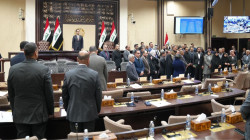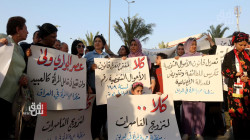Iraq's Federal Supreme Court approves proposal to amend Personal Status Law with conditions

Shafaq News/ On Tuesday, Iraq's Federal Supreme Court approved the continuation of the proposal to amend the Personal Status Law, under specific regulations and conditions.
The court rejected the appeal against the proposal’s first reading in parliament, filed by MP Noor Nafei Ali.
The court emphasized that “the Iraqi constitution grants citizens the freedom to organize their personal status according to their religion, sect, belief, or personal choices, and that this right cannot be restricted except by law, provided that the law does not infringe upon these rights.”
The Iraqi parliament completed its report and discussion of the proposed amendments to Articles 2 and 10 of the Personal Status Law No. 188 of 1959 during its session on Monday.
The proposed amendments have sparked debate due to concerns about their alignment with the country's cultural, religious, and sectarian diversity. These amendments, driven mainly by the Shiite Coordination Framework, aim to grant religious authorities power over personal status matters. This shift allows clerics from both Shia and Sunni endowments to conclude marriage contracts outside of the court, raising legal questions about the legality of such marriages, particularly concerning age requirements.
The current amendment attempt relates to Article 41 of the constitution, which states that Iraqis are free in their personal status according to their religions and sects.
The amendment stipulates that "Iraqis have the right to choose the Shia or Sunni sect's rules for all personal status matters when concluding a marriage contract. Those who have not chosen a particular sect's rules when concluding a marriage contract can submit a request to the competent Personal Status Court to apply Sharia rules according to the sect they choose, and the court must comply with their request."
Furthermore, the amendment proposes that "a code of Sharia rulings will organize personal status matters according to the Shia Jaafari jurisprudence, and another code will organize personal status matters according to Sunni jurisprudence, based on the opinions of prominent jurists of each sect in Iraq."
Additionally, there is a proposal to amend Article 57 regarding child custody. The current law grants the mother the right to custody and upbringing of the child during and after marriage, and a divorced mother retains custody even if she remarries. However, the new amendment would deprive the mother of custody rights if she remarries. Under this amendment, the child would have the right to choose which parent to live with at fifteen, with the court's approval.





